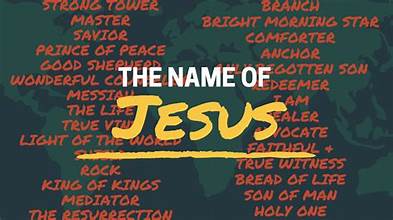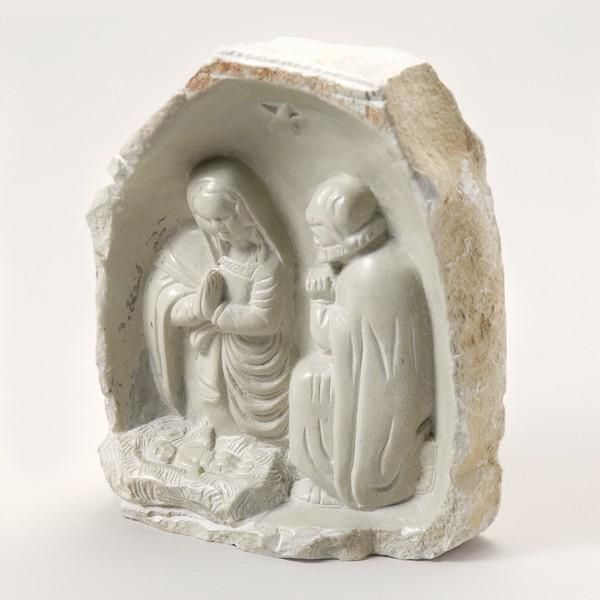Background Passages: Luke 1: 28-33; Matthew 1:20-23; John 1:1-14; and Philippians 2:6-8
Parents have some options when it comes to naming their children. They can run with family names, names of cultural significance, or simple alliterative names or nicknames that sound good together. They have choices.
I try to help when I can.
When my cousins Paul and Robbie Jo started their family, I suggested Wyatt, as in Earp, and Walker, as in “Texas Ranger.” It took a few years, but Wyatt eventually made the cut.
When my nephew and niece were expecting their second child, I had a dream that Amy gave birth in a school library. Naturally, I suggested Dewey, as in “decimal system.” It’s hard to believe they went with James.
Before my grandson Eli became Eli, Adam pushed hard from some rather unorthodox options. My first-born grandson could have been Theodore Roosevelt Lewis…or Gilgamesh Lewis…Archimedes, Hannibal or Atila Lewis. I know I would have loved him despite the historical or scientific references, but I’m glad he’s Eli.
In her Shakespearean soliloquy, Juliet, pondered “What’s in a name? That which we call a rose by any other name would smell as sweet.”
Juliet’s love for Romeo was imperiled by the family feud between the Montagues and Capulets. Juliet lamented that she would have chosen a different name for either her or Romeo because any other name would smell as sweet and enable them to openly marry. She didn’t have that choice, however.
“What’s in a name?” asks Juliet.
As we transition from Thanksgiving to Christmas, it’s a great question.
With her heart and mind racing, Mary heard the news from an angel that she would have a baby. A most unexpected child, both in conception and timing. Pledged to be married to Joseph, a local builder, Mary and her family were making plans for a wedding day a few months down the road. Before the marriage was consummated, an angel appeared with a surprising word.
“Greetings, you who are highly favored! The Lord is with you.”
Mary was greatly troubled at his words and wondered what kind of greeting this might be. But the angel said to her, “Do not be afraid, Mary. You have found favor with God. You will conceive and give birth to a son, and you are to call him Jesus. He will be great and will be called the Son of the Most High. The Lord God will give him the throne of his father David, and he will reign over Jacob’s descendants forever. His kingdom will never end.” (Luke 1:28-33)
It’s difficult to understand the depth of faith it took to accept all that the angel told her, but Mary gave herself in obedience to what she had heard. After finding a way to break the news to Joseph, the angel had another bewildered and troubled soul to soothe. Joseph, as honorable a man as one could hope to meet, considered the tough decision to dissolve their relationship quietly, giving Mary options to avoid the scorn that would surely come.
He agonized over the decision into the night until the angel came with words or reassurance.
“Joseph, son of David, do not be afraid to take Mary home as your wife, because what is conceived in her is from the Holy Spirit. She will give birth to a son and you are to give him the name Jesus, because he will save his people from their sins.”
All this took place to fulfill what the Lord had said through the prophet. “The virgin shall conceive and give birth to a son, and they will call him Immanuel” (which means, “God with us.”). (Mattthew 1:20-23)
What’s in the name Jesus?
There are many names or titles given to Jesus throughout scripture. Isaiah ran an impressive list of descriptors of the one who would come to save.
He will be called Wonderful Counselor. Mighty God. Everlasting Father. Prince of Peace. (Isaiah 9:6)
Jeremiah refers to the coming “King who will reign wisely” and shares that “This is the name by which he will be called, ‘The Lord is our Righteousness.’”
The descriptors tell us how Jesus would relate to us in our times of need…As counselor amid our troubles. As an all-powerful God amid our weakness. As an eternal father amid our loneliness. As the giver of true contentment and peace amid life’s turmoil. These descriptors speak to his work among us, but the titles don’t tell us much about who he is.
What’s in the name Jesus? Why did God have the angel so strongly make the point that the baby already had a name chosen by his father in heaven since the beginning of time itself? Why were they to call him Jesus.
There is nothing holy or sacred about the arrangement of letters or the phonetic sounds associated with the name of Jesus. Depending on the language one speaks, the name will not sound the same. When it was shared with Mary and Joseph, it was a fairly common name in Judea and Galilee.
Jesus is an English rendering of the Greek name “Iesous,” which is a translation of the ancient Hebrew “Yehoshua.” We see it written also in the English Old Testament as “Joshua.” Jesus. Iesous. Yehoshua. Joshua.
Whether written in English, Greek or Hebrew, the name of Jesus is formed from Hebraic roots suggesting “Jehovah is salvation.” There’s the first hint of who he is. He isn’t some form of salvation. He is salvation personified. While the message would not have been lost on Mary, it was clearly given to Joseph who was told to name him Jesus because “he will save his people from their sins.”
How could this child soon to be born to Mary and Joseph be salvation? How is it possible for this baby to be salvation and ultimately how is it possible for him to achieve what he was sent to do?
Mary and Joseph get this word as well.
While Mary was told to call the baby Jesus, other people will know him as and call him “the Son of the Most High.” Jesus. God’s son. Conceived in her by God’s spirit. Given to her and Joseph to love, care and teach. Make no mistake, though, he is God’s son. While the angel told Joseph to call the child Jesus, he said others will call him Immanuel, “God with us.”
This idea is the message of Christmas found in the gospel of John and reinforced by Paul in his letter to the Philippians.
In the beginning was the Word, and the Word was with God, and the Word was God…The Word became flesh and made his dwelling among us. We have seen his glory, the glory of the one and only Son, who came from the Father, full of grace and truth.” (John 1:1-14)
“Who, being in very nature god, did not consider equality with God something to be used to his own advantage; rather he made himself nothing by taking the very nature of a servant, being made in human likeness. And being found in appearance as a man, he humbled himself by becoming obedient to death—even to death on the cross! (Philippians 2:6-8)
As we end today in the shadow of Thanksgiving and the dawn of the coming Christmas, I find great joy in the name of Jesus. I am thankful to God for sending his son into the world.
Though his life lived 2000 years ago looked markedly different than the life I live today, so much of it still rings the same. The same worries. The same temptations. The same heartaches. The same joys. The same relationships. I’m grateful that through his life he still teaches me how to live. Such remembrance makes this a Happy Thanksgiving.
I find such hope for this Christmas season in the birth of the one God sent as Jesus…the one he promised from the beginning to be our source of salvation. One whose very name reminds me that Jehovah saves. The Son of the Most High. Immanuel. God’s son. God with us. God’s son would be with us.
I find in the name of Jesus the promise of another very Merry Christmas.


